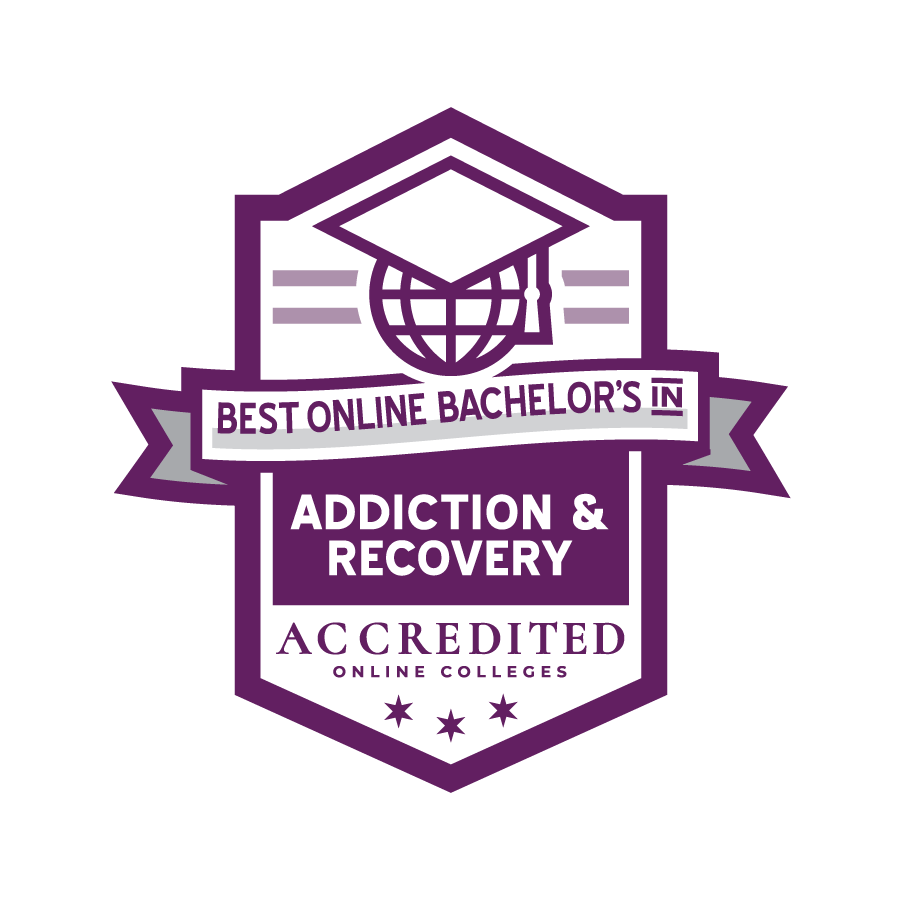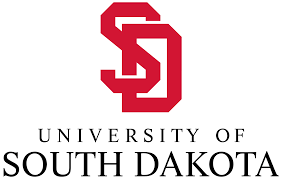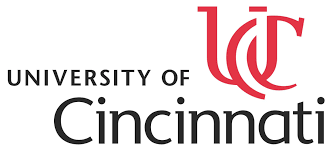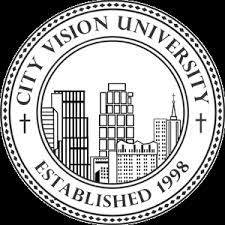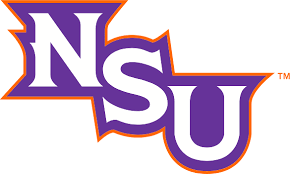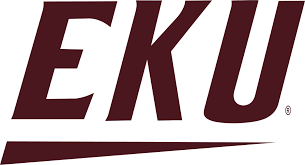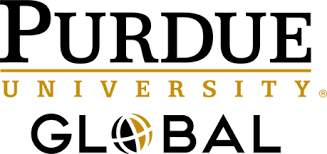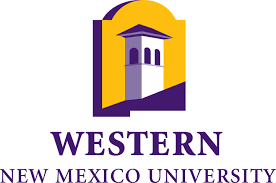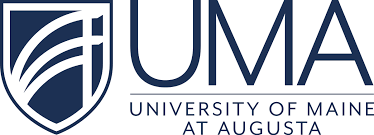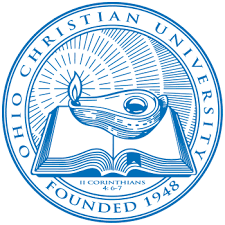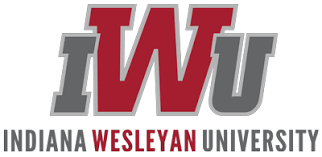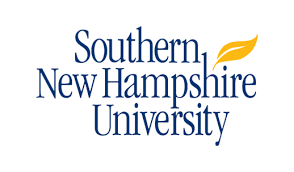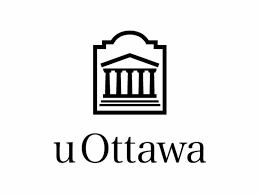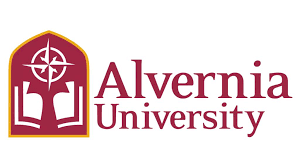The best online bachelor’s in addictions and recovery will prepare you for a rewarding career in an area that is experiencing a fast rise in demand for skilled professionals.
You may be looking at this article with a clear goal of becoming an addictions counselor. Or, perhaps it’s a role that hasn’t yet crossed your mind. Regardless, death from drug overdose is now the number-one cause of death among Americans under the age of 50. There is a growing demand for skilled professionals trained in addiction and recovery, which is how one of the best online bachelor’s in addiction and recovery can help you.
Featured Programs
See Also: 10 Tips for Maximizing Your Learning Experience in Online College
What will you learn with this degree?
In these programs, you will learn how to help both individuals and groups who are dealing with substance abuse and mental health problems. You’ll learn about the psychology underpinning such disorders, effective individual and group treatment methods, psychopharmacology, and more. You’ll also gain a strong general education foundation through mandatory core courses.
What requirements will you need to meet for a degree in addiction and recovery?
Most accredited universities will ask you to meet the general admission requirements to enroll in an addiction and recovery degree program. For the best online bachelor’s degrees in addiction and recovery, this typically means meeting the minimum GPA requirement of around 2.0 to 2.5 (on a 4.0 scale). It’s also common to be asked for official transcripts and SAT scores.
See Also: Financial Aid Tips for Online College
What are the Best Addiction & Recovery Degrees?
Accredited Online College uses the most recent data from the Department of Education’s National Center for Education Statistics. Each program is scored individually. It’s then compared to all other universities offering that degree to determine the final score you see by each ranking. Accredited Online College considers the affordability, student-to-faculty ratio, and the number of programs offered on-campus and online. To learn more, visit our methodology page.
#1. University of South Dakota
The University of South Dakota offers the best Online Bachelor of Science in Addiction Counseling and Prevention. You’ll gain a strong academic foundation in addition to earning real-world experience in a counseling position. You’ll be studying under the Department of Addiction Counseling and Prevention, with all programs under this school accredited by the National Addiction Studies Accreditation Commission (NASAC).
For admission into this top addictions and recovery program, you’ll need to meet the university’s general admission criteria. This includes a high school GPA of at least 2.6 (on a 4.0 scale) in all courses. Alternatively, you could rank in the upper 50% of your graduating class, hold an ACT composite score of at least 21, or achieve a 3 or higher on the English Language Arts and Mathematics Smarter Balanced Assessments.
Undergraduate online tuition comes to around $354.75 per credit hour for distance learning programs at this university. Graduate students pay a slightly higher rate of around $470.45 per credit hour. There’s also a discount for active-duty military, which is fixed at a rate of around $250 per credit hour.
#2. University of Cincinnati
The University of Cincinnati’s B.S. in Substance Abuse Counseling is a 60-120-credit program with start dates in the summer, fall, and spring. This top online program aims to prepare graduates to work in the areas of addiction and recovery; this will prepare you to help solve the growing substance abuse and overdose problem that is growing across the nation.
This high-value degree program emphasizes research and also involves practical course content that will help you learn the skills needed to become a qualified clinician. All courses are offered online, and you’ve got the option of enrolling on either a part-time or full-time basis. As a graduate of this program, you’ll also meet the academic requirements for licensure.
Tuition for undergraduates in this program varies slightly depending on residency. As a state resident, you’ll pay around $525 per credit hour, while non-residents pay around $540 per credit hour. This is based on a 12-credit semester load; for more information and estimated costs, check out the tuition calculator.
#3. Liberty University
Liberty University offers an affordable Bachelor of Science in Psychology – Addictions and Recovery. You can study entirely online via Liberty’s distance learning campus, LU Online. What’s more, you could complete the best-value program in as few as 3.5 years if you enroll on a full-time basis.
For admission into the program, you’ll need to have a minimum cumulative GPA of 2.0, in addition to submitting your official transcripts, though there’s no application fee. If successful, you’ll study courses like:
- Social Psychology
- Psychology and Chemistry
- Overview of Theory and Treatment of Substance Abuse
LU Online is committed to keeping costs low, which is why their tuition rate has been frozen for a number of years. Tuition is low too, at around $390 per credit hour for full-time undergraduate students and $455 per credit hour for part-time students. A full list of tuition rates can be found on the website.
#4. City Vision University
City Vision University offers a Christian-centric Online Bachelor’s Degree in Addiction Counseling. Comprising 120 credit hours, this program can be completed in around 4 years as a full-time student. You’ll study 8-week courses, and all courses are available online without the need for campus visits.
You’ll cover standard psychology and addiction courses, such as:
- Mental Illness
- Addiction & Dual Diagnosis
- Sexual Issues in Addiction
- Family Issues & Recovery
However, you’ll also study courses aligned with the Christian faith, including an Introduction to Christian Addiction Counseling. The program includes educational program design too.
According to City Vision’s tuition and financial information resources, this is the most affordable online Christian degree program of its kind. As an undergraduate student, you’ll pay tuition of around $750 per course. There’s also a discount available for active-duty military and veterans, rescue mission, and Salvation Army applicants.
#5. Northwestern State University of Louisiana
Northwestern State University of Louisiana offers a cheap Bachelor of Science in Addiction Studies. With this program, you’ll gain a deep understanding of the human mind and how addictions are formed, in addition to how to treat these disorders. It has been ranked within the top 10 Most Affordable Online Colleges for Substance Abuse Counseling Degrees on more than one occasion.
For admission into the program, you’ll need to meet the university’s general admissions criteria. This includes having a minimum cumulative GPA of at least 2.50 (on a 4.0 scale), achieving passing scores of Praxis Core tests, or having an ACT composite score of at least 22 or SAT combined score of at least 1,100. The university has an acceptance rate of around 85%.
NSU offers a flat rate of tuition for students who are attending the university exclusively online. As an undergraduate that meets this criterion, you’ll pay tuition of around $375 per credit hour for up to 12 hours and $100 per credit thereafter. You’ll also avoid paying any out-of-state fees regardless of your residency status.
#6. Eastern Kentucky University
At Eastern Kentucky University, there’s a top Bachelor of Science in Psychology program that’s available entirely online. Studying via EKU Online, you’ll complete 120 credit hours in total, and you may transfer in up to 90 credit hours from prior college study. The course schedule is broken down into accelerated 8-week terms, and courses start on 6 dates throughout the year.
There’s also an element of customization available with this program, as students can choose from 8 different concentrations. These include:
- General Psychology
- Autism Spectrum Disorders
- Substance Abuse
- Forensic Psychology
- Psychiatric Rehabilitation
- Child & Family Psychology
- Brain & Cognitive Sciences
- Workplace Psychology
Of course, Substance Abuse is the preferred concentration for those interested in working with addiction and substance abuse disorders.
To help keep your costs down, EKU Online offers free textbooks and course materials to all undergraduate students offered a place. Tuition for this program is charged at around $417 per credit hour, regardless of residency, and there are reduced tuition rates available for active-duty military servicemen and women.
#7. Purdue University-Main Campus
At Purdue University Global, you can enroll in an Online Bachelor of Science Degree in Psychology – Addictions. The flexible course schedule allows you to continue working while you study, with around 15-18 hours of course effort required per week. Courses last for 10 weeks, and you will complete a total of 180 credit hours over 4 years.
The program is accredited by NASAC, and all the coursework you’ll complete fulfills the educational requirements necessary to sit for your NCAC Level I and II certification exams. In addition to a strong academic grounding in psychology and addictions, you’ll also have the opportunity to join a range of organizations, including the Psychology Club, and you can complete an optional internship.
Undergraduate tuition at Purdue University Global costs just $371 per quarter credit hour if you’re studying online. However, if you’re a resident of Indiana, you’ll pay a further reduced rate of just $280 per quarter credit hour. For more information on tuition rates and financial assistance, check out the tuition page on the university’s website.
#8. Western New Mexico University
Western New Mexico University offers a uniquely titled Bachelor’s Degree in Chemical Dependency Counseling. With this program under your belt, you’ll be prepared for careers in areas of chemical dependency counseling and research. It is, in fact, the only bachelor’s degree of its kind in the State of New Mexico.
While the program is available traditionally through face-to-face instruction, all courses are available online. You’ll take courses that include:
- Substance Abuse and Crime
- Trauma Addiction & Recovery
- Dual Diagnosis
- Addiction & Attachment
- Pharmacology
A full list of courses that make up the program can be found on the university’s course guide.
The university has had a tuition guarantee in place for a number of years, which ensures that you’ll pay one rate of tuition throughout your degree plan. As a state resident, this means tuition and fees of around $4,148.06 per semester on a full-time program. For non-residents, the cost is around double, with approximately $8,065.62 due in tuition and fees.
#9. University of Maine at Augusta
At the University of Maine at Augusta (UMA), you can enroll in a Mental Health & Human Services degree, with both an associate and bachelor’s degree available. There is also an additional graduate certificate in Substance Abuse Disorders. Within the last decade, the university has graduated around 1,500 students and seen approximately 85% progress into industry-related careers.
There are four concentrations available to choose from which include:
- Adult Mental Health Rehabilitation
- Addictions Counseling
- Child and Family Services
- Mental Health and Human Services Generalist
You’ll take a mix of courses that will teach you how to manage your caseloads, handle crises, champion psychological rehabilitation, and teach essential life and career skills.
Tuition rates at UMA depend on your state residency. As a resident of Maine, you’ll pay an affordable undergraduate tuition of around $245 per credit hour. Students from out of state pay an increased rate of around $607 per credit hour. There are other rates that you’ll find on the university’s tuition information page.
#10. SUNY Empire State College
You can earn your Bachelor of Science in Addiction Studies at Empire State College through a 124-credit degree program. The curriculum has been designed in line with the competencies model from the U.S. Department of Health and Human Service, which ensures you’ll be learning from the most up-to-date standards and principles.
You’ll also have the chance to meet the necessary academic requirements to become a Credentialed Alcoholism Substance Abuse Counselor (CASAC) in New York State. This would include completing courses such as:
- Intervention and Treatment Approaches
- Assessment, Evaluation and Treatment Planning
- Education and Prevention Skills
In total, around 32 credits are required as part of the CASAC-eligible course schedule.
At SUNY Empire State College, you will pay around $295 per credit hour if you’re a resident of New York State. Out-of-state students pay a higher rate of around $353, though this is still a very affordable rate for a New York college. There are further discounts available for United States active-duty military, guards, reservists, and veterans.
#11. Ohio Christian University
At Ohio Christian University, you can enroll in a high-value Bachelor of Arts in Substance Abuse Counseling. This program will prepare you to work in addiction recovery. To gain your licensure in chemical dependency counseling in the State of Ohio, you’ll need to complete this degree, gain 40 hours of training, and complete the licensure test.
Most students enrolled in this program gain their experience for licensure by working in a related role after completion of their major. Among the courses included in this major are:
- Methods of Counseling
- Abnormal Psychology
- Case Management
- Psychopharmacology
- Prevention Strategies
- Trauma & Addiction
- Preparation for the State Test
Tuition for almost all of the bachelor’s degrees offered by Ohio Christian University is charged at the same rate. You’ll pay tuition of around $416 per credit hour, and there’s a discounted rate of $250 per credit hour for active-duty military members. Around 80% of students have their student bills completely covered by financial aid.
#12. Indiana Wesleyan University-Marion
Indiana Wesleyan University-Marion (IWU) offers an Online Bachelor’s – Addiction Counseling degree program. This is a 22-month program that offers an in-depth education that’s blended with the Christian faith. Most of the coursework you’ll complete is available online, and practicums are also offered at a number of clinical sites.
Your courses will include those such as:
- General Psychology
- Addictions Theory
- Principles of Addictions Counseling
- Addictions Counseling Skills
- Psychology of Abnormal Behavior
Your practicum will be either an on-site, agency learning experience or based within an addictions facility. In total, you’ll need to complete 350 hours of practicum experience.
The program requires the completion of 48 credit hours, with tuition costing around $392 per credit hour. This excludes the cost of books and fees. You can find more information about the financial support available on the university’s financial aid website.
#13. Crown College
The Bachelor of Science in Alcohol + Drug Counseling at Crown College will help you with your eligibility to become a Licensed Alcohol and Drug Counselor (LADC) through the MN Board of Behavioural Health and Therapy (BBHT). This is a Christ-centered curriculum that’s offered entirely online, with small class sizes.
The Christian Studies Core of this curriculum involves 15-21 credit hours’ worth of study. These courses include
- History of the Old Testament
- History of the New Testament
- Interpreting the Gospels
- Interpreting Romans
In addition to general education courses, you’ll also complete around 48 credit hours’ worth of major courses, such as General Psychology, Abnormal Psychology, and Psychopharmacology.
When it comes to tuition, undergraduate students pay around $425 per credit, while graduate students pay around $575 per credit. There are a number of scholarships and grants available directly from Crown College, which you can read more about on the scholarships and grants page.
#14. Southern New Hampshire University
At Southern New Hampshire University (SNHU), students can enroll in a Bachelor of Arts in Human Services with an Online Substance Abuse concentration. The program comprises 120 credits and will accept up to 90 credits in transfer from prior college learning, which could reduce the cost of your tuition.
As part of this concentration, you’ll learn how to utilize strategies in addiction recovery across diverse populations, to provide care that aligns with legal and ethical considerations of the field, and to evaluate policy development, among other skills. It’s worth noting that this program doesn’t make you eligible for licensure directly.
SNHU has not raised the cost of tuition in around a decade, so you know you’re getting good value and stability in your course fees. The cost of undergraduate programs is around $320 per credit hour, which is around $9,600 annually for 30 credits. You’ll find more information on financial support and tuition rates on the tuition & financial aid page.
#15. Ottawa University
Ottawa University (OU) offers an Online Bachelor of Science in Addiction Counseling. You can earn your degree while taking courses in areas such as:
- alcoholism
- chemical dependency
- harm reduction
- dual diagnosis
- substance use disorders
The accelerated, online program is lead by Dr. Kirk Bowden, President-Elect of NAADAC.
As part of this program, you will complete two internships, each comprising 150 hours of clinical experience. Half of those hours must be completed in a role that involves direct client contact, so you’ll be sure to develop important hands-on experience prior to graduation, which will help you pursue licensure.
If you transfer from another college, you could transfer up to 80 lower-division credit hours, reducing the cost of your program. Otherwise, tuition rates for undergraduate students are typically $499 for bachelor’s level courses. This program is the exception, with a reduced rate of $399 per credit hour.
#16. Alvernia University
Alvernia University offers a Bachelor of Arts in Addictions and Mental Health Treatment. Comprising 123 credit hours, the course lasts between 2 and 4 years, and courses last for around 7 weeks each. Students can transfer in up to 75 credits from prior college learning to reduce tuition and complete the program more quickly.
You’ll study topics such as:
- issues surrounding the prevention and treatment of substance abuse disorders
- theories and therapeutic approaches to treatment
- criss theory and the de-escalation of potentially dangerous scenarios
- various counseling techniques and communication theories.
You’ll also have the opportunity to complete 12 credits of practicum experience.
All bachelor’s degrees at Alvernia University attract a tuition rate of around $500 per credit hour, in addition to a $50 per credit hour fee. For a program comprising 123 credit hours, the estimated cost of attendance is around $67,650 annually, and tuition rates may rise year on year. With the maximum number of transfer credits, this could drop to around $26,400.
FAQs
How do I become a substance abuse / addiction counselor?
Typically, students who are interested in becoming an addiction counselor will complete an accredited bachelor’s degree in counseling at a four-year university. Since there is a mandatory number of clinical experience required to gain licensure, many programs will also include a practicum or internship.
Once you’ve gained your experience, whether that’s through a degree program or an existing role alongside your online studies, and assuming you’ve graduated from your program, you’ll be able to pass a national or state licensing examination after your degree. You’ll also need to pass a felony and other background checks to ensure your suitability.
How much do addiction counselors make?
The average annual salary for a counselor working in the field of addiction and recovery is around $59,190. This is according to figures from the Bureau of Labor Statistics (BLS) in 2024. However, this is just the average; there is a small difference between the upper and lower 10% of earners.
Salaries tend to be fairly similar regardless of your chosen role in this industry, unlike other careers, which can see a larger gulf between the smallest and biggest earners. The highest earners in this field made around $54,070 and were working in government facilities and agencies. The lowest 10% of earners were working in residential mental health and substance abuse facilities, with a salary of around $58,200.
According to the BLS statistics, strong employment growth is also expected in this area, owing to the increasing issue of substance abuse in the United States. Over the next decade, the BLS predicts a 17% increase in available positions, resulting in around 48,300 new openings annually.
What can I do with a degree in addiction studies?
Studies in the area of addiction and recovery are suited to students who have an interest in helping people to better their lives. However, this degree doesn’t mean that you have to become an addictions counselor. The roles available with this degree are challenging, but they can also be highly rewarding, and they’ll give you the opportunity to work with others to improve their wellbeing.
Some of the most popular career choices for graduates of an addiction studies program include addiction counselor, substance abuse counselor, mental health counselor, and social worker. Most of these roles have a similar earning potential, with experienced professionals making around $40,000 – $50,000, as above.
However, other graduates might pursue roles as:
- health educator
- correctional treatment specialist
- community health worker
- social services coordinator
According to the BLS, health education specialists and community health workers made around $48,140 annually in 2020, with similar job growth prospects to addiction counselors.
Do I need experience to enroll in an addictions recovery degree?
No, you don’t need prior clinical experience to be eligible to apply for these programs. Most programs require a minimum GPA of 2.0 to 2.5 (on a 4.0 scale). However, prior clinical experience could help give your application a competitive edge and could even make you eligible for financial support.
Bear in mind that the licensure requirements for addiction counselors involve a certain number of hours’ worth of experience, which varies from state to state. While many programs involve a practicum that will see you gain this experience, there are some that don’t. So, have a plan in place to ensure that you can meet the eligibility criteria for getting your license. Bear in mind that clinical experience gained from a role not related to your program, but related to the industry, can contribute toward your mandatory clinical hours for licensure.
What certifications can I get in addiction studies?
Getting your bachelor’s degree isn’t necessarily the ultimate goal as an addictions counselor. With professional licensure and certifications under your belt, you could be a more competitive candidate when it comes to applying for roles or promotions, or seeking higher salaries. The National Certification Commission for Addiction Professionals (NCCAP) offers three foundational certificates for addiction counselors.
These are the National Certified Addiction Counselor, Level I, National Certified Addiction Counselor, Level II, and the Master Addiction Counselor (MAC). For the latter certification, you’ll need to have earned your master’s degree in substance abuse disorders and addiction or a related counseling subject.
If you’re interested in pursuing higher education, then you should check out 20 Best Bachelor’s in Addiction/Substance Abuse and Top 10 Online Masters in Counseling Degree Programs!

